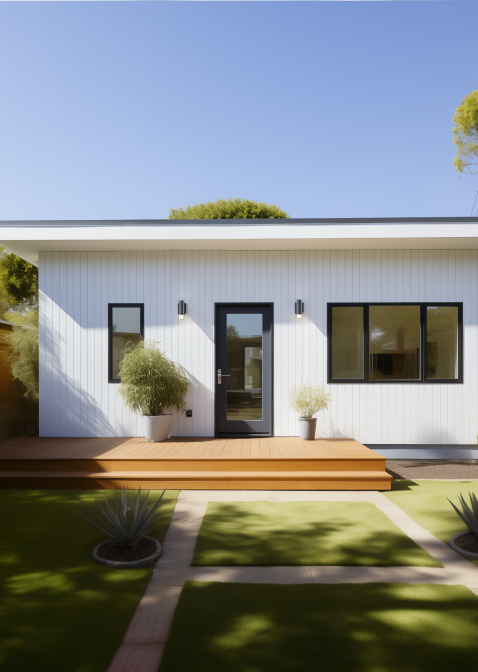Living in a smart small house comes with a plethora of benefits that can greatly enhance your quality of life. These compact, tech-savvy homes are designed to maximize space and efficiency, while also promoting a sustainable lifestyle.
In this blog post, we’ll explore the numerous advantages of smart small houses, which range from affordability and energy efficiency to convenience and environmental friendliness.
One of the most significant benefits of smart small houses is their affordability. Smaller living spaces require fewer materials and less labor for construction, which translates to lower building costs. Moreover, because these homes are designed to optimize the use of space, they often require less maintenance and repair work over time.
In addition to lower construction and maintenance costs, smart small houses generally come with lower utility bills. Their compact size, combined with energy-efficient technology, means that homeowners can save on heating, cooling, and electricity costs.
Finally, smart small houses are often built in clusters or communities, which can lead to shared amenities and services. This can further reduce living expenses, as residents may have access to shared facilities like gyms, gardens, and laundry rooms.
Smart small houses are designed to be highly energy-efficient. This is achieved through a combination of advanced technology and smart design principles.
Some of the energy-saving features you may find in a smart small house include:
High-quality insulation is crucial for reducing heat transfer, resulting in lower energy consumption for heating and cooling.
Energy-efficient windows, such as double-glazed or low-emissivity windows, can minimize heat transfer and reduce energy costs.
Energy-efficient appliances use less electricity, which not only saves money but also reduces the home’s carbon footprint.
By generating electricity through solar panels, smart small houses can significantly reduce their reliance on grid power and lower energy costs.
Smart small houses are equipped with modern technology that enhances the convenience and functionality of daily living. Home automation systems can be customized to meet the specific needs of the homeowner, providing seamless control over various aspects of the home.
Some examples of smart home technology include:
Smart small houses are inherently more eco-friendly than traditional homes due to their size and efficient design. By requiring less land and resources for construction, they reduce the overall environmental impact.
Furthermore, these homes often incorporate sustainable building materials and practices, such as:
Living in a smart small house often means being part of a community of like-minded individuals who value sustainability, minimalism, and efficient living. These communities can foster strong social connections, promoting a sense of belonging and well-being.
Some of the social benefits of living in a smart small-house community include:
Common areas, such as gardens, playgrounds, and community centers, can encourage social interaction and foster a sense of community.
Sharing resources and services, such as carpooling, tool lending, or meal sharing, can help reduce individual consumption and promote cooperation among neighbors.
Organized gatherings, workshops, and celebrations can help residents connect and strengthen social bonds.
One of the often-overlooked benefits of smart small houses is their flexible design. These homes are specifically designed to make the most of limited space, often incorporating multifunctional and adaptable features. This means that the layout of the home can be easily modified to suit the occupants’ changing needs and preferences.
Some examples of flexible design elements include:
By incorporating flexible design elements, smart small houses can adapt to the evolving needs of their occupants, making them long-term, practical housing solutions.
Living in a smart small house can also have a positive impact on mental well-being. The minimalist lifestyle often associated with these homes can help reduce stress, anxiety, and feelings of overwhelm by eliminating clutter and promoting a more organized living environment.
Some mental well-being benefits of living in a smart small house include:
When considering purchasing a smart home hub, it’s essential to:
Smart small houses offer a multitude of benefits that make them an appealing option for those looking to live a more sustainable, efficient, and connected lifestyle. Their affordability, energy efficiency, and environmental friendliness make them an attractive alternative to traditional housing options. Furthermore, the convenience and automation provided by smart home technology enhance the overall living experience, while the sense of community and social connections can contribute to a higher quality of life.











